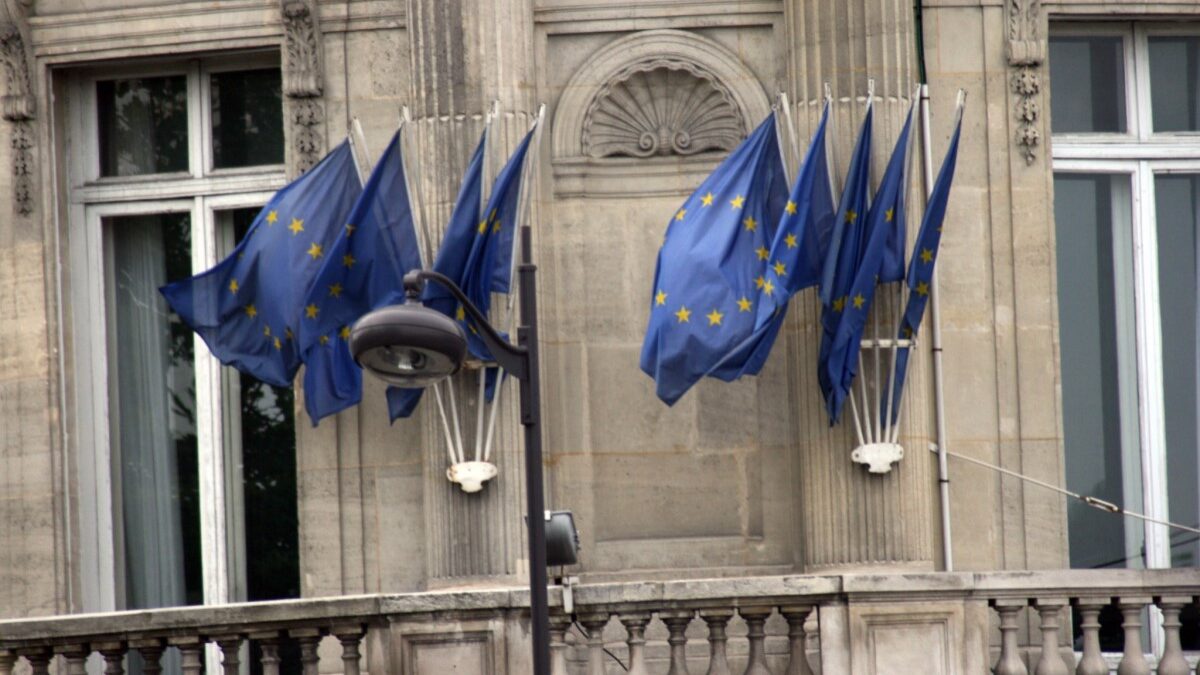In one of history’s ironic twists of fate, western leaders met in Munich in late February for a conference that spectacularly failed to prevent a European war. Just as their predecessors in 1938, world leaders at the 2022 Munich Security Conference produced empty statements and self-aggrandizement.
History will judge the foreign policy and military failures of the West leading to the war in Ukraine. Yet it will likely overlook another factor in the crisis—these leaders have discarded all remnants of objectivity and moral credibility, a reality that has been painfully visible since the dual-shock of Brexit and the election of President Donald Trump in 2016.
Among the frequent rhetorical sleights of hand during this period, “rule of law” has been arguably the most important. Poland and Hungary frequently come under attack for these purported transgressions. Then-candidate Joe Biden included the countries with dictatorship Belarus in his ill-informed “thugs of the world” statement.
In Poland, political outrage has centered on a law to reform its courts, still heavily influenced by communist-era judges and their subsequent appointees. After his election, however, Biden unapologetically authorized a study to alter the U.S. Supreme Court to fit his party’s ideological preferences.
Hungary ratified a new constitution in 2011, a long-awaited development after two decades of a placeholder post-communist version. Despite its legally required two-thirds parliamentary approval, internal and external critics have called it undemocratic.
Yet the same rule-of-law scrutiny does not apply evenly across the western world, as Canadian Prime Minister Justin Trudeau recently flaunted any semblance of democracy by arresting protesters and freezing the bank accounts of dissidents. Ideologically sympathetic pipeline protesters suffered no such fate in 2020.
As this was occurring, Trudeau gave a speech at the Munich conference. On February 23, the U.S. State Department touted the two “countries’ steadfast commitment to democratic values.” Clearly, to these world leaders, power grabs are legitimate if they are ideologically convenient.
In another naked power grab, the European Union has confronted member nations on sovereign issues like family, morality, and education of children, despite its constitutional lack of competence to do so. According to the bloc’s founding agreements, “every action taken by the EU is founded on treaties that have been approved voluntarily and democratically by all EU member countries…[I]f a policy area is not cited in a treaty, the Commission cannot propose a law in that area.”
Social issues like abortion, marriage, and sexual education in schools do not fall within the EU’s purview, a fact Brussels has regularly ignored. Slovenian Prime Minister Janez Janša, head of the rotating presidency of the EU in the second half of 2021, cited “imaginary European values” as the reason for this habit.
Nevertheless, Catholic Poland and Catholic-Protestant Hungary have endured a particularly severe storm of Brusselian criticism over their defense of traditional social policies. In November 2019, after numerous Polish voivodeships and municipalities approved a “Charter of the Rights of the Family,” western media wasted little time before inventing the term “LGBT-free zones.”
Similarly, in June 2021, Hungary passed a law restricting sexual content aimed at school-age children. EU Commission leader Ursula von der Leyen quickly asserted, “This Hungarian bill is a shame.” Western media and Twitterati dubbed the law “anti-LGBT.” This month, Poland passed a similar law that would prevent sexual activists from conducting activities in Polish schools. An uproar from Brussels is inevitable.
Among the petty responses to these laws was an attempt by the Munich city council to project a rainbow pattern on the exterior of Munich’s Allianz Arena during a soccer match between Germany and Hungary in June. Dutch Prime Minister Mark Rutte declared Hungary “has no place” in the EU anymore. Far more significantly, the European Commission launched proceedings against Poland and Hungary in what it termed “infringement procedures…related to the equality and the protection of human rights.”
While Brussels has spared little effort in combating such laws in its sovereign member states, it has remained generally quiet about threats to women and minorities on the ground. From Helsinki to Zürich, sexual assaults against women skyrocketed after the migrant crisis of 2015. In the most egregious example, more than 1,200 women were sexually assaulted or raped in Köln on New Year’s Eve 2015-16. Only 18 men were convicted.
On a continent once synonymous with female advancement, women are confronting warnings not to go out alone at night. The German government recorded a doubling of attacks against lesbian, gay, bisexual, and transgender people from 2013 to 2018.
Many West European countries have recorded an increase in antisemitic acts with Muslim perpetrators in recent years, with varying degrees of government acknowledgment. According to American Jewish scholar Jonathan Tobin, “Jews are far safer [in] Eastern European countries such as Hungary and Poland — whose governments are controlled by right-wing populists — than they are in France and Germany.” Although EU policy shortcomings are at least partially responsible for these phenomena, Brussels bureaucrats are far more comfortable attacking political adversaries within the bloc.
This uneven judgment predictably stretched its tentacles to the novel realm of Covid-19 regulations. In spring 2020, for example, the requisite two-thirds of Hungarian parliamentarians approved a measure declaring a “state of danger,” an emergency provision that granted special powers to the government to address the pandemic; such a provision is allowed under the Hungarian constitution. In April of that year, the European parliament called the measure “totally incompatible with European values.”
France, ostensibly immune to such judgments, passed legislation via executive decree, suspended local elections, and implemented draconian measures—including forcible home confinement—on its citizens. Spain tracked its citizens’ outdoor movement with drones.
In 2021, Austria achieved perhaps a new low when it confined unvaccinated residents to their homes and barred them from entering restaurants, public facilities, and most shops. Vienna also enacted a law enforcing compulsory vaccination, the first such law in Europe. “European values,” unsurprisingly, seem to be more closely tied to political ideology than to individual liberties or pandemic responses.
Then, of course, is the topic of migration, one that has been unavoidable in both Europe and the United States for at least a decade. After Czechia, Hungary, Romania, and Slovakia (and, later, Poland) rejected the EU’s migrant resettlement scheme, EU and German leaders suggested cutting funds to those countries. The European Court of Justice further ruled those countries must accept their compulsory number of migrants, a ruling they rejected. Just a half-decade later, the EU displayed less obstinacy on the same topic.
In November 2021, after Belarus ferried Middle Eastern migrants to the country’s borders with Poland and Lithuania, the EU changed its position on funding border walls. The bloc’s animosity toward the Belarusian authoritarian state ostensibly outweighed its desire to enforce its long-held open-borders doctrine.
Across the world—from authoritarian powers like China and Russia, to downtrodden western-looking states like Ukraine and Georgia, to lesser-among-equals Poland and Hungary—the pettiness and moral bankruptcy of the western elite is clearly recognizable in the foreign policy sphere. As long as this persists, it will have a profound impact on war and peace, defense and diplomacy.









